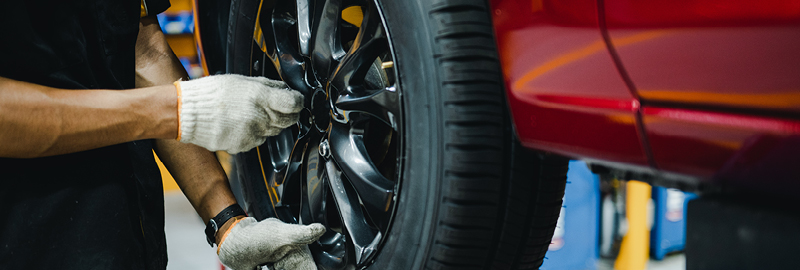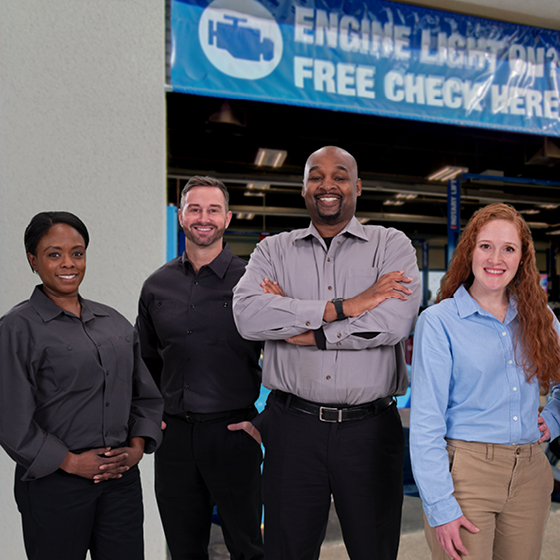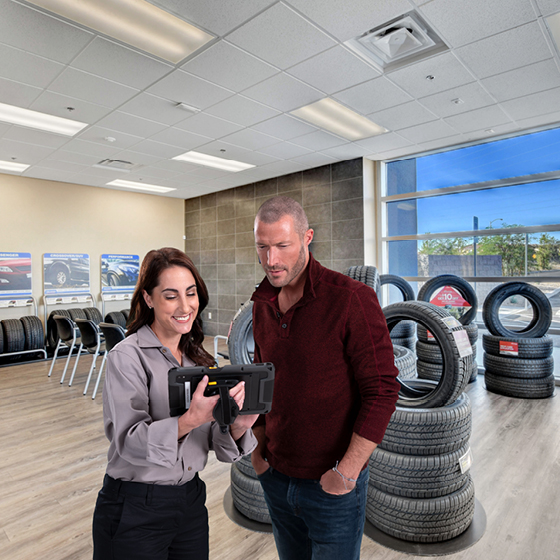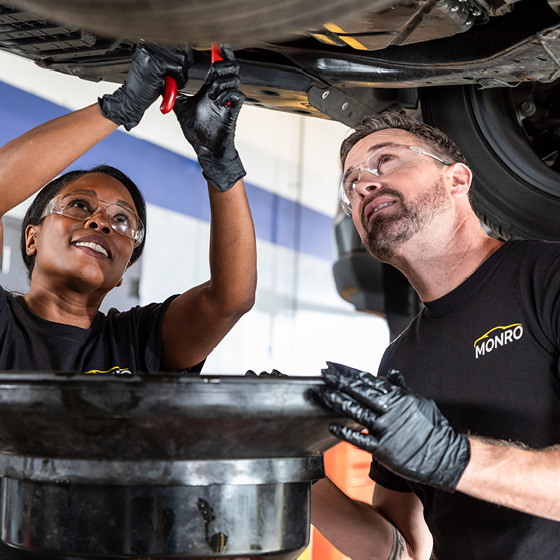
5 Tire Maintenance Tips to Extend the Life of Your Tires
1. Inspect Your Tires
A visual inspection of your tires can go a long way when it comes to maintaining your tires. Look for cracks, bulges, wear, and proper tread depth. Tires that are worn, cracked, or out of balance can seriously hinder your ability to drive and control your car. If you see any of these signs, it may be time to replace your tires.
2. Valve Caps
Your tires’ valve caps play an important role. They keep out any debris and prevent moisture from entering the tire, which can cause damage if the moisture freezes. This is especially critical for vehicles equipped with TPMS.
3. Proper Inflation & Pressure
Summer heat can significantly affect tire air pressure, making it crucial to adhere to the recommended inflation levels specified in your vehicle’s manual. Always check the tire pressure when the tires are cold, ideally early in the morning before driving. Maintaining proper inflation during the warmer months is vital for maximizing tread life and preventing blowouts. Since tires naturally lose some pressure over time, regular checks are essential to ensure tire safety and efficiency.
Need assistance? Swing by any of our nearby locations and we will gladly check or teach you how to check your air pressure regularly.
4. Check Your Spare
Your regular tires aren’t the only ones that need attention. Spare tires are often overlooked, but they can be a lifesaver in a pinch. The issue is that they can lose pressure over time, leaving you with a flat spare when you need it most. Check your spare tire pressure as a part of your tire care routine.
5. Rotate Your Tires Regularly
Tire rotations are an important part of car care. Generally, tires should be rotated every 5,000 – 7,500 miles, or every six months. The best guarantee is to check in your owner manual – it will have the manufacturer’s recommendation.
How long do tires last?
The key to long-lasting tires lies in preventive care, critical to keeping your car in top shape. Regular inspections, proper inflation, timely rotation, wheel alignment, and adherence to manufacturer specifications contribute to optimal performance and maximizing the tire’s life. Proper balancing is equally important as it ensures even weight distribution, which translates to a smoother and vibration-free ride. Balanced tires also reduce and prevent uneven tire wear.
It’s also crucial to consider the age of the tires and the mileage they have covered. These factors are significant indicators of when a tire might need replacing. A neglected tire is more prone to blowouts, compromising overall vehicle safety and handling.
When to Replace Your Tires
Remember, even the most durable tires won’t last forever. Here are some key signs that it’s time for a new set of tires:
-
Tread Depth:
The most crucial indicator is tread depth. Look for the small tread wear indicators molded into the base of the grooves. If the tread reaches the same level, it’s time for replacements – skimping on tread depth compromises your safety. According to the National Highway Traffic Safety Administration, tires should be replaced when the tread reaches 2/32 of an inch. Want to know how to check tire tread depth? Use the penny test: insert a Lincoln penny head-down between the treads, and if you can see the top of Lincoln’s head, it’s time for replacements.
-
Visible Warnings:
Any cuts, cracks, or bulges on the tread or sidewall can be signs of internal damage and pose a serious safety risk. Don’t wait to address these issues – get your tires inspected by a professional immediately.
-
Loss of Pressure:
Tires naturally lose air pressure over time, but a sudden or persistent drop can indicate a leak. If you find yourself refilling a particular tire more often than the others, a puncture, a faulty valve or the tire pressure monitoring might need attention.
-
Unusual Vibrations:
Excessive vibrations in the steering wheel or throughout the car while driving on a smooth surface could indicate tire problems. Have a professional diagnose the cause of the vibrations to ensure a safe and smooth ride.
You can maximize your tire lifespan and performance by following the tips above. Don’t forget about Tire Choice’s free ConfiDrive® Performance Review, a multi-point inspection to check your car’s overall health. Our trained Technicians can help detect potential problems as early as possible and keep you safe on the road. Our 32-point checklist will check the condition of your tires, including tread depth, in addition to other components of your vehicle. Don’t wait until it’s too late – prioritize your tire care and let us help you get the most out of your tires. Visit a Tire Choice location near you – walk ins are welcome! Or, if you prefer, schedule an appointment for a time that is convenient for you.





